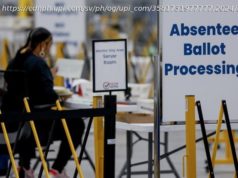There may be more at stake here than higher education.
the Supreme Court heard oral arguments in two race-based affirmative action cases in higher education; one involving Harvard University and one involving The University of North Carolina, the oldest private and public universities in the nation, respectively.
Both cases were brought in 2014 by conservative activist Edward Blum, the force behind Students for Fair Admissions, which believes that preferences in college admissions are unfair, unnecessary, and unconstitutional.
Affirmative action, signed into law during the LBJ administration, was first upheld by the Supreme Court in 1978. The Court held that race could be used as one factor for determining admissions at public universities if it was part of an overall plan to achieve diversity in the student body.
A current landmark case is Grutter v. Bollinger, a 2003 case, through which affirmative action has survived as the law of the land in the United States.
In Grutter, the Court held, 5-4, that affirmative action in higher education is not unconstitutional. Here, the Equal Protection Clause of the Fourteenth Amendment did not prohibit the University of Michigan Law School’s narrowly tailored use of race in admissions decisions to further a compelling interest in obtaining the educational benefits that flow from a diverse student body.






